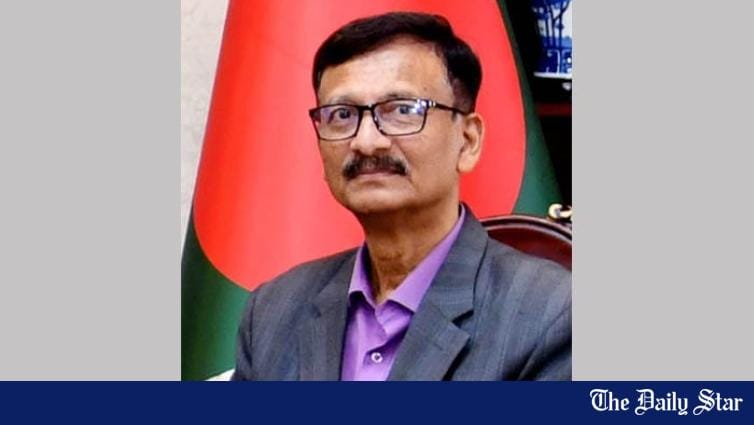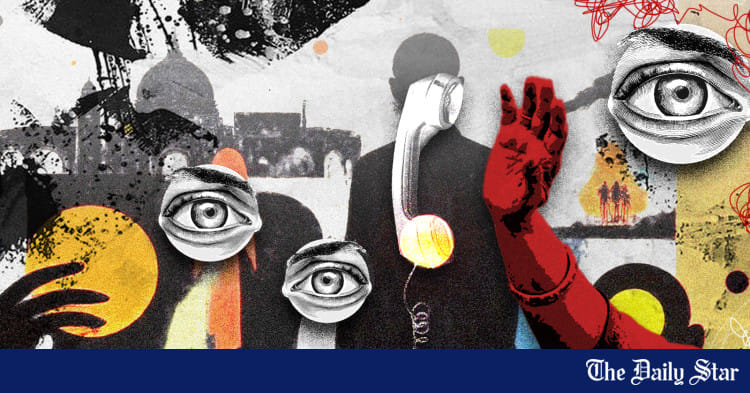Saif
Senior Member
- Joined
- Jan 24, 2024
- Messages
- 16,880
- Likes
- 8,153
- Nation

- Residence

- Axis Group


Dhaka, Delhi agree to establish good working relations: Touhid
“We agreed that we need to reach a good working relationship,” the adviser told reporters at the foreign ministry this afternoon, referring to his recent meeting with Indian External Affairs Minister S Jaishankar in Muscat, Oman
Dhaka, Delhi agree to establish good working relations: Touhid

Photo: BSS
Foreign Affairs Adviser Md Touhid Hossain today said both Dhaka and Delhi have agreed to establish good working relations by addressing the remaining challenges.
"We agreed that we need to reach a good working relationship," the adviser told reporters at the foreign ministry this afternoon, referring to his recent meeting with Indian External Affairs Minister S Jaishankar in Muscat, Oman.
He noted that trade between the two countries has regained momentum and is approaching previous levels, but some issues, such as visa-related challenges, still need to be resolved.
Responding to a query, the adviser said no specific challenges were identified during the discussion, but both sides acknowledged the need to overcome certain obstacles to further strengthen bilateral ties.
Touhid said he invited Jaishankar to visit Bangladesh, highlighting the existing foreign minister-level mechanism. The last foreign minister-level meeting took place in New Delhi.
He mentioned that Bangladesh would arrange Jaishankar's visit once a suitable date is set.
Regarding the extradition of ousted prime minister Sheikh Hasina, Hossain said no specific discussions were held on the matter, but general issues were discussed.
He said it is an independent issue, and Bangladesh requested Hasina's extradition following the court order.
About the pause in US funding, Touhid clarified that the funding cut is not a Bangladesh-specific issue.
He said Bangladesh needs to find ways to overcome the challenges posed by the cuts.
On the sidelines of the 8th Indian Ocean Conference (IOC), Adviser Touhid met Jaishankar in Muscat, Oman, on Sunday.
During the meeting, both leaders acknowledged the challenges in bilateral relations, underscoring the importance of working together to address them.
Photo: BSS
Foreign Affairs Adviser Md Touhid Hossain today said both Dhaka and Delhi have agreed to establish good working relations by addressing the remaining challenges.
"We agreed that we need to reach a good working relationship," the adviser told reporters at the foreign ministry this afternoon, referring to his recent meeting with Indian External Affairs Minister S Jaishankar in Muscat, Oman.
He noted that trade between the two countries has regained momentum and is approaching previous levels, but some issues, such as visa-related challenges, still need to be resolved.
Responding to a query, the adviser said no specific challenges were identified during the discussion, but both sides acknowledged the need to overcome certain obstacles to further strengthen bilateral ties.
Touhid said he invited Jaishankar to visit Bangladesh, highlighting the existing foreign minister-level mechanism. The last foreign minister-level meeting took place in New Delhi.
He mentioned that Bangladesh would arrange Jaishankar's visit once a suitable date is set.
Regarding the extradition of ousted prime minister Sheikh Hasina, Hossain said no specific discussions were held on the matter, but general issues were discussed.
He said it is an independent issue, and Bangladesh requested Hasina's extradition following the court order.
About the pause in US funding, Touhid clarified that the funding cut is not a Bangladesh-specific issue.
He said Bangladesh needs to find ways to overcome the challenges posed by the cuts.
On the sidelines of the 8th Indian Ocean Conference (IOC), Adviser Touhid met Jaishankar in Muscat, Oman, on Sunday.
During the meeting, both leaders acknowledged the challenges in bilateral relations, underscoring the importance of working together to address them.





